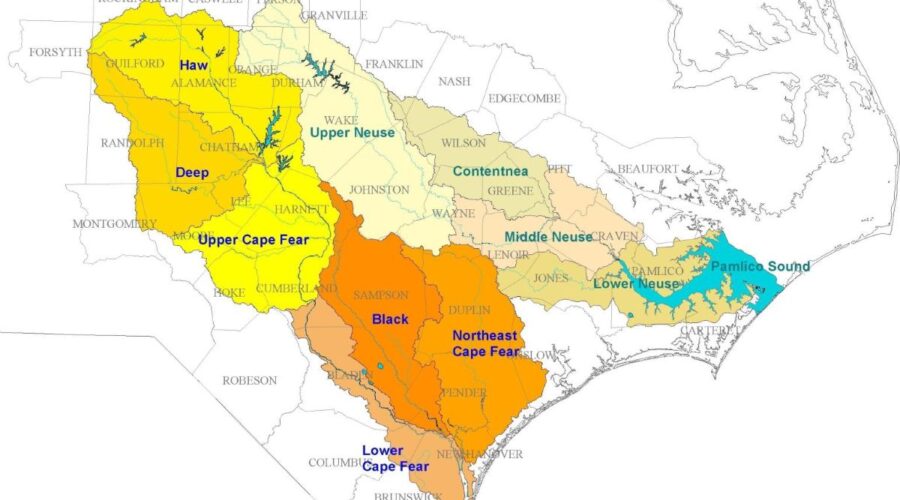State staff need more time before presenting draft monitoring requirements for dischargers of PFAS and 1,4-dioxane for the Environmental Management Commission to consider.
Public Health
Groups move for disclosure of Chemours’ sealed documents
The advocacy organizations’ motion against the chemical company argues that unsealing the 21,000 pages of documents “will help communities understand the harm the facility has caused, and will continue to cause, to their own health, their property values, and even the lives of future generations.”
Utility industry has heavy hand in draft PFAS monitoring rule
As a committee of the Environmental Management Commission works to draft a PFAS monitoring framework rule, environmental advocates argue the draft language protects industry polluters.
Upriver Cape Fear plant releases high levels of 1,4-dioxane
Levels of the compound believed to be a human carcinogen at the Asheboro wastewater treatment plant far exceeded national limits in late January.
EPA to NC: Solvent discharge limits deadline ‘mandatory’
A pending lawsuit notwithstanding, the Environmental Protection Agency has put North Carolina on notice: There’s no extension of the time frames for addressing the federal agency’s objections regarding the discharge of 1,4 dioxane into waters upstream of the Cape Fear.
Anger at commission boils over during PFAS rules hearing
Public outrage greeted the state Environmental Management Commission Monday in Wilmington for its latency in adopting per- and polyfluoroalkyl substance health standards, for including only three compounds in the proposed standards, and for appeasing the industries that make the chemicals.
State sets temporary allowable PFAS limits in groundwater
The North Carolina Division of Water Resources released interim maximum allowable concentrations to help define cleanup targets for groundwater contaminated with high levels of the chemical compounds.
Van der Vaart: Likely carcinogen does not equal carcinogen
Chief Administrative Law Judge and Director of the Office of Administrative Hearings Dr. Donald van der Vaart revoked permit limits of 1,4-dioxane for municipal wastewater treatment plants that discharge a compound the EPA calls a likely human carcinogen into the drinking water sources of tens of thousands.
NC focuses on helping municipal water, sewer — not septic
Some towns are providing assistance for people on private systems, about half the state’s households.
Court dismisses case challenging PFAS health advisory
A federal appeals court this week dismissed Chemours’ petition to review the Environmental Protection Agency’s advisory related to the toxicity of a compound used in the company’s GenX manufacturing.
Commission members balk on 5 proposed PFAS standards
Committees of the Environmental Management Commission stalled proposed health standards for most of the eight synthetic compounds put forth, including two the EPA classified as likely carcinogens.
Forecasters, lifeguards warn: Rip currents are deadly
Rip currents have killed four times as many people in the Carolinas since 2000 as tornados, floods and wind combined, a National Weather Service official said.
Superintendent vows ‘complete remediation’ of Buxton site
Superintendent David Hallac told attendees at a public meeting on the pollution and debris on Buxton Beach that Cape Hatteras National Seashore officials are working with the Corps and Navy on cleanup and funding options amid the bureaucratic logjam.
Burnin’ up: State offers help for top weather-related killer
North Carolina climate and resilience officials say the heat action toolkit they have developed is a customizable guide for local governments to more successfully prevent heat-related deaths amid rising global temperatures.
Totals on PFAS-contaminated utilities ‘coming down daily’
The state’s top drinking water protection official told the Environmental Management Commission Thursday that a shrinking number of North Carolinians get their drinking water from public systems with at least one of the synthetic chemicals that exceeds new federal limits.
Biser urges environmental commission to hear PFAS rules
NCDEQ Secretary Elizabeth Biser is urging the Environmental Management Commission to move forward this week with setting surface and groundwater standards for PFAS, a move the NC Chamber opposes.
















